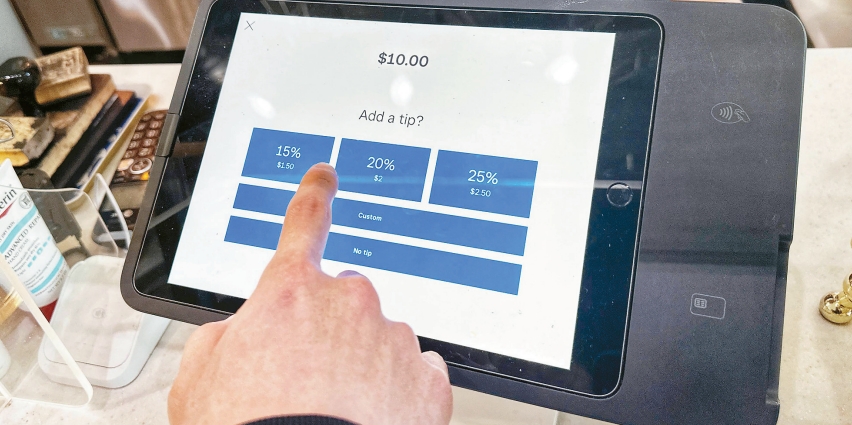A Korean American-owned bakery in Los Angeles has become the subject of online discussion after a customer reported witnessing staff allegedly mocking another customer for not leaving a tip. The post, originally shared on Reddit, has since drawn attention to the growing tension between tipping expectations and customer comfort.

According to the post, the user said they were waiting in line when they saw “a lady in front of me who bought a lot of bread like at least 8 to 10 boxes.” The cashier then “turned to her coworker behind her and made a sarcastic comment mocking the customer out loud.” The post added that “everyone nearby… all heard it” and recalled the staff saying, “See, she’s not tipping,” while the customer was still at the counter.
The user described the situation as uncomfortable, adding that the customer appeared visibly upset. “That lady should have spent at least over $125 on bread,” the post read. “We all clearly saw what happened, but no one said anything. I still feel bad about that.”
After the post circulated online, the bakery’s owner issued a statement acknowledging the concerns and announcing immediate changes to store policy. The statement expressed regret for any misunderstanding and confirmed that the tipping option had been removed from the payment system. It also said that the team would be compensated through adjusted wages rather than customer tips.
The owner’s message added that the business had reviewed its payment records and identified transactions where tips were entered incorrectly, promising to process full refunds through proper channels. “I sincerely apologize for any inconvenience this may have caused,” the statement said, noting that internal actions had been taken with the employee involved.
Local restaurant operators say similar disputes have surfaced across Koreatown as tipping prompts become more common in self-service and digital payment systems. Hyunjoo Cho, who runs a Korean restaurant in the neighborhood, said, “There are customers who intentionally leave no tip or only a small one. Because tips directly affect employees’ income, misunderstandings and resentment can happen easily.” She added, “I understand how employees feel, but keeping customers comfortable enough to come back is just as important. It’s not always easy to balance both.”
Incidents related to tipping have occasionally escalated beyond verbal disputes. On October 20, outlets including Daily Mail reported a viral TikTok video showing a waitress blocking a customer’s car and demanding a tip after they failed to leave one — a scene that many viewers described as symbolic of rising tension around gratuities.
Steve Kim, a restaurant manager in Orange County, said his staff are instructed not to confront customers about tips. “You can’t make it a problem if someone doesn’t tip,” he said. “Tipping is ultimately the customer’s choice, and they might have been unhappy with the service or the food. Even if an employee is disappointed, we tell them never to show it.”
According to a June 2025 report by Bankrate, about 63% of U.S. consumers said they feel negatively about constant tipping prompts—up from 59% a year earlier. Economists and consumer advocates describe this growing discomfort as “tip fatigue,” reflecting a broader frustration with how tipping has extended into nearly every type of transaction.
Jung-hoon Park (57), who lives in Irvine, said, “Even when I order takeout without table service, there’s often a preset tip of 18% or more. If you press ‘No Tip,’ you feel self-conscious because the staff or people behind you can see it.”
BY YOONSEO SONG [song.yoonseo@koreadaily.com]
![LA residents fear ICE enforcement raids may spark violence like Minneapolis The Instagram account of the civic monitoring network @sc_communityalerts tracks the activities of federal agents and shares related information. [Instagram capture]](https://www.koreadailyus.com/wp-content/uploads/2026/01/0128-ICE-100x70.jpg)
![American Dream fades as young immigrants lose paths to stay in U.S. Undergraduate students at the University of Southern California, preparing to graduate in May last year, pose for photos in front of the school’s iconic “Traveler” statue on the campus quad. [Sangjin Kim, The Korea Daily]](https://www.koreadailyus.com/wp-content/uploads/2026/01/0128-dream-1-100x70.jpg)

